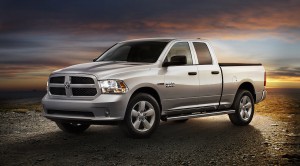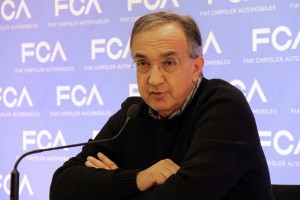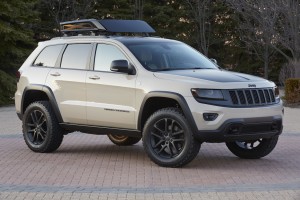
The Ram 1500 turbodiesel has won a number of awards - but the EPA claims it was rigged to pass emissions tests.
The U.S. Justice Department has reportedly given Fiat Chrysler Automobiles an ultimatum: either settle allegations it rigged its diesel models to illegally pass U.S. emissions tests or be hit with a lawsuit.
With the Euro-American automaker so far fiercely challenging those claims by the government, a civil suit could be filed as early as this week, according to a report by the Reuters news service.
The automaker says it sees the threat of litigation as “counterproductive,” adding that it “will defend itself vigorously” in court, if necessary. But whether it will now back down is uncertain considering FCA management will need to weigh the potential damages – both in terms of legal costs and possible fines and penalties, as well as the hit to its image the automaker could face.
Volkswagen AG has so far shelled out nearly $30 billion in various fines, fees and settlements resulting from its rigging of two different diesel engines used in about 550,000 vehicles sold in the States. It suffered a massive slump in sales when the subterfuge was revealed in September 2015. VW’s numbers have only begun to recover in recent months.
(VW CEO Mueller now target of German investigation of diesel rigging. Click Here for the latest.)
In the German maker’s case, it was faced with the reality that diesel vehicles it claimed were clean, quick and fuel-efficient actually couldn’t meet EPA emissions standards. Engineers came up with a so-called defeat device, software smart enough to recognize when a vehicle was being tested, altering settings to drop production of emissions like smog-forming oxides of nitrogen. In real-world situations, however, the engines actually produced up to 40 times the mandated maximum.
According to the Environmental Protection Agency, FCA used a similar strategy. It now offers diesels on several different models, including its Jeep Grand Cherokee SUV and Ram 1500 pickup. But the government claims it also relied on rigged software in 104,000 of those models, equipped with a 3.0-liter diesel, between the 2014 and 2016 model-years.
According to the EPA, FCA could be hit with a fine of as much as $4.6 billion under Clean Air regulations. As with VW, few expect it would face the maximum fine, but the maker could also be forced to repair or buy back vehicles with the rigged engines – something that has added more than $10 billion in costs to Volkswagen’s tabs. FCA could also face legal action by dealers and shareholders.
The allegations against FCA were announced in January, during the final weeks of the Obama, Cynthia Giles, assistant administrator for the EPA’s Office of Enforcement and Compliance Assurance, terming the case, “a clear and serious violation of the Clean Air Act… threatening public health by polluting the air that we breathe.”
The automaker responded that it was “disappointed” by the allegations, as it was using “state-of-the-art emission control hardware. During a media roundtable at the 2017 North American International Auto Show in Detroit, FCA Chief Executive Sergio Marchionne insisted the carmaker’s diesel products fairly met government emissions standards. “We wouldn’t have sold them otherwise.”
(VW offers big deals on fixed diesel leftovers. Click Here for the story.)

FCA CEO Sergio Marchionne insists the maker wouldn' have sold its diesels if they failed emissions tests.
The two sides have been negotiating ever since. It is unclear if FCA had hoped that the anti-regulatory Trump Administration would led the matter drop, but it appears the government has grown tired of the case dragging on and is now ready to battle it out in court.
If that does happen, it would mean a markedly different approach compared to how VW addressed its own case. The German maker acknowledged rigging its 2.0-liter diesel shortly after the EPA aired its accusation in September 2015. It subsequently accepted responsibility for taking similar steps with a more upscale 3.0-liter diesel used in Porsche and Audi products, as well as those sold by the Volkswagen brand.
Reports from Germany suggested VW’s top management expected the case to result in relatively minor costs, the eventual total taking them by surprise. Some industry insiders suggest FCA may simply feel it has nothing to lose by standing up to the government.
The maker also played hardball with the National Highway Traffic Safety Administration several years ago when it was accused of building Jeeps that could catch fire in rear-end collisions. But just days before NHTSA was set to take legal action against it, FCA announced a major recall.
It could yet fold in this latest game of chicken.
(GM pulling out of India, South Africa. Click Here for the breaking story.)

